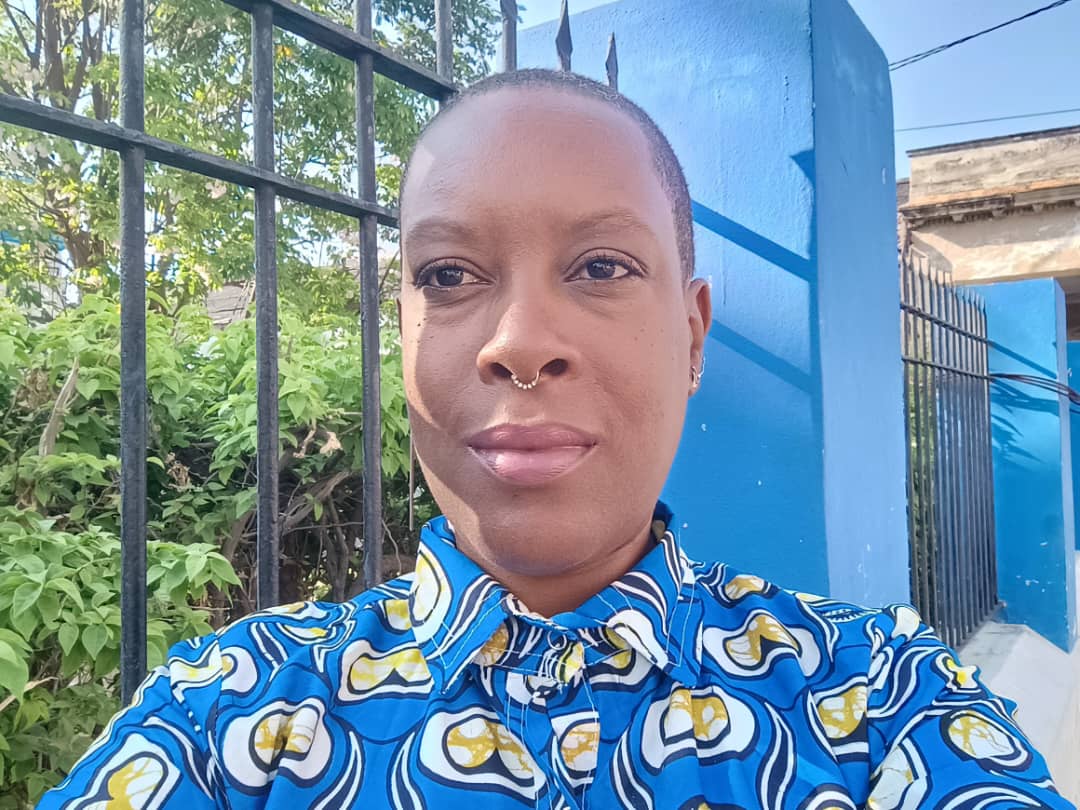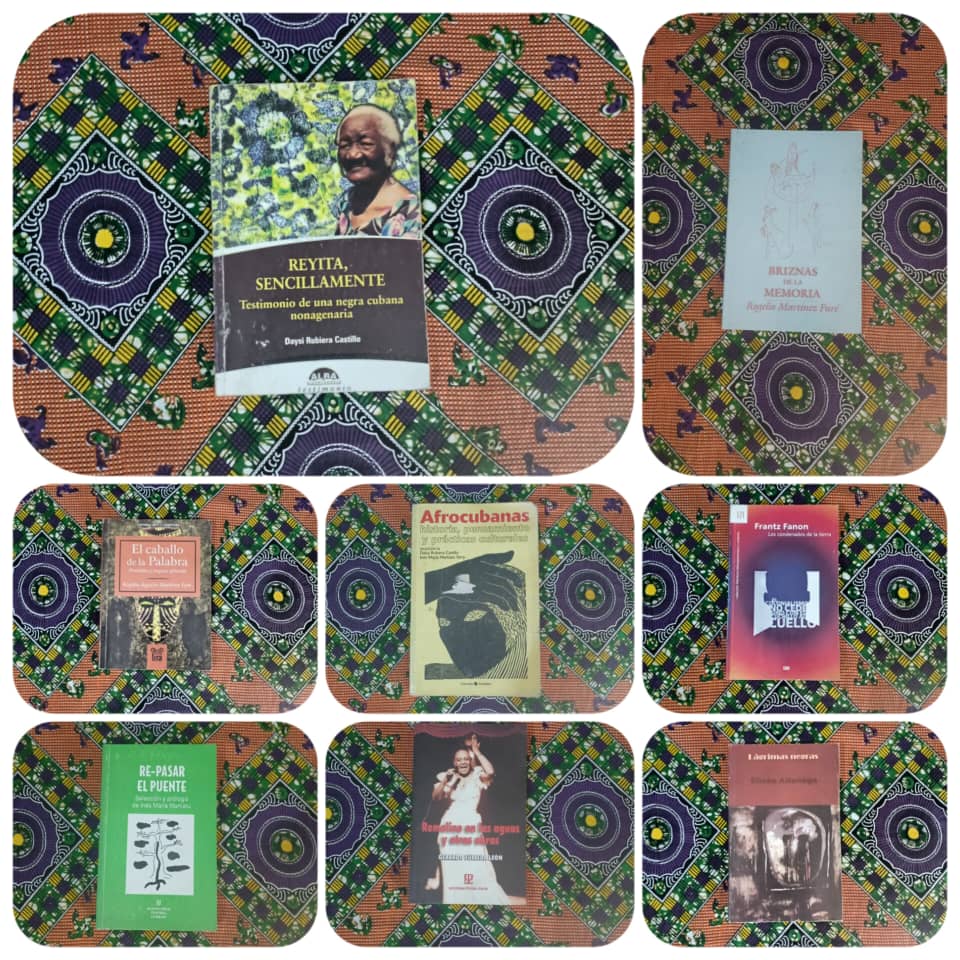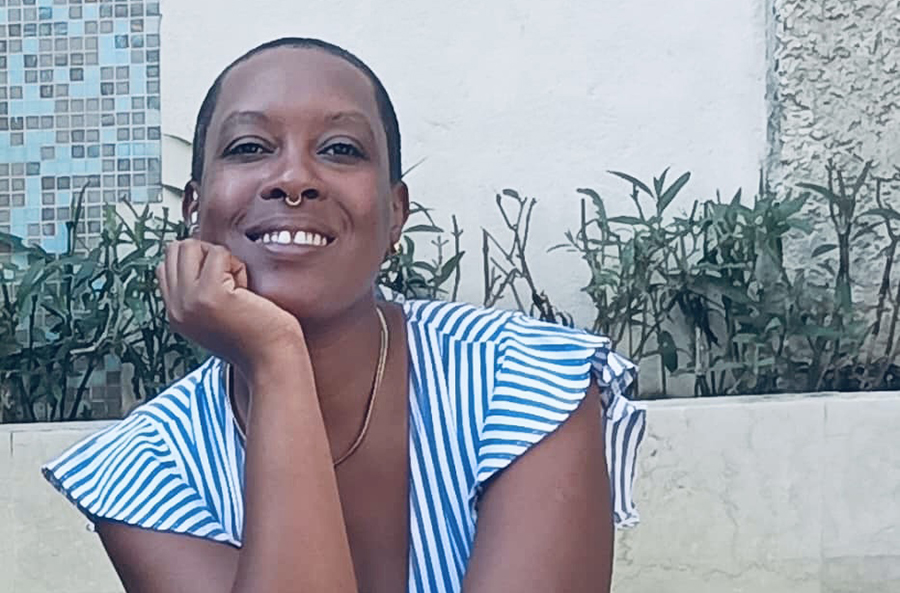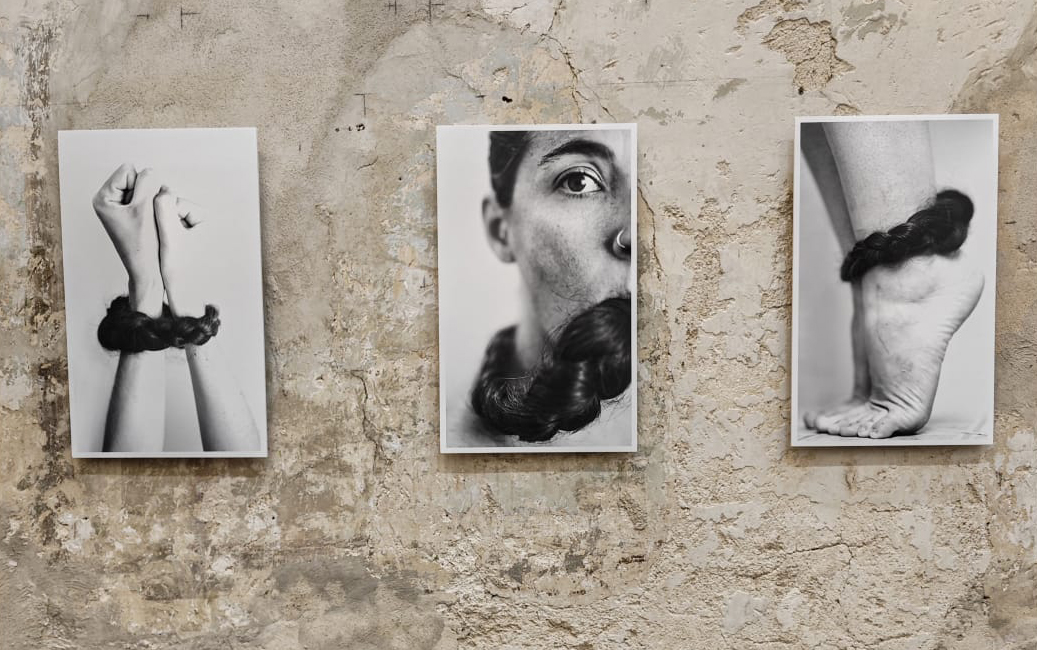
Whenever Katiuska Govin Zambrana—who insists on being called Kata—went to visit private or state-owned bookstores in Havana, she could spend an entire afternoon finding perhaps one or no books by Black writers. Much less by Black female writers. “And when I found them, they were relegated to the last shelves or the bottom of a large pile of books,” she says.
When she inaugurated Ireti Bookstore on February 3rd, 2024, “the first Afro-centered bookstore in the entire history of Cuba since 1886,” she saw the idea of a space exclusively for Afro writers come to life, necessary amid the ignorance and scarcity of Black literary references in the country.
“It wasn’t just my ignorance but that of a large part of the Black community, both of the new generations and the older ones. I found this out through informal conversations or intentional interviews to learn about the topic,” says Kata, who will be announcing her catalog of about 600 books through the bookstore’s social media this month.
Despite being a doctor by profession, Kata, as a reader and Black woman, believed in creating a project that brings together Cuban and international writers, and, like its name, gives hope. “The word Ireti comes from the Yoruba language, and its meaning is hope; it fits perfectly with everything I want to achieve with it.”
Why would someone who studied medicine want to undertake a literary project like this?
I am a doctor by profession, but also an Afro-descendant woman with a view of society from an Afro-centered and Afro-feminist philosophy, which allowed me to realize the need that I and our Black population have to know our own history through literature, but also that this literature is created from our experiences. I believe that people are many things, capable of doing what we set our minds to; it just takes determination and consistency to achieve it. I love being a doctor and also a bookseller; both things are necessary for our society and for my life.
What is the reason or need to create an “Afro-centered” bookstore in Cuba?
It is the first Afro-centered bookstore in the entire history of Cuba since 1886, the year slavery was abolished, until now. It is currently the only one in the country. I take 1886 as a starting point because from that moment, Afro-descendants were able to obtain benefits like being educators, owning printing presses, engaging in journalism, having their own newspapers, among others. But there is still no known bookstore specializing in this topic.
Spaces like this are being created worldwide with the goal of teaching and empowering Afro-descendants through knowledge of their history. I also think that “to know where you are going, you must know where you come from.” What better way than literature to show us this path? After oral narration, the written word comes to preserve all this previously spoken knowledge. If from an Afrofuturist perspective we desire a good life for the Afro-descendant community, this is one of the ways.

Why is it important to put Afro authors and stories at the center of the conversation? To what extent has discrimination also impacted literature in the country?
It is important to place Black authors and their stories at the center because for a long time we have been relegated to observing our own experiences, merely as spectators of the events of our own lives. Being victims of the extraction of our ancestral knowledge, which they legitimize as their own from their positions of power in the academies. Putting ourselves at the center is part of our empowerment.
The few publications by Black writers show that they have been relegated to the background, reissues are scarce, and there is little promotion, dissemination, and distribution of their works. Of course, structural racism is part of society, and Cuba is no exception. Afro-descendant authors are not sufficiently visible in the country, especially women, the new generations with their new discourses, people from other provinces, and writers from rural areas.
How difficult is it to promote an independent bookstore project in Cuba? Is it possible? Is there a legal framework to do so?
Yes, there is a legal framework to carry out this activity under Self-Employment. The license consists of buying and selling used books. This way, you can work as a bookseller. It is difficult, but not impossible.
It is difficult because of the country’s economy and its instability, but this doesn’t only affect bookstores; it impacts any business. There is a lack of this type of literature in both state and private bookstores. New editions are needed, and there is little to no access to new foreign literature.
Where do the books that Ireti Bookstore relies on come from?
I get the books from state and private bookstores, the few I find in them. Also from donations and mainly from private libraries of people who decide to sell their books due to lack of space or because they are emigrating. In fact, I must say that I have found some magnificent copies in these libraries, true treasures.
If you had to mention five essential titles that make up your catalog, which would they be?
For me, this is truly a difficult question since all of them are unique and special in their different contents. I could cite books like Reyita, sencillamente by Daisy Rubiera Castillos; Emergiendo del silencio by Daisy Rubiera Castillos and Oilda Hevia; The Black Jacobins by C.L.R. James; El negro en Cuba by Tomás Fernández Robaina; or Re-pasar el puente by Inés María Martiatu.
Who are the main clients, consumers, or readers of Ireti?
The main clients or consumers of the bookstore are scholars of the topic, and secondly, the Afro-descendant population in general. I would like the Black community to become the majority of consumers, so the promotional and dissemination work done in the bookstore is aimed at reaching this population.
Does the bookstore run any events or interaction spaces with the communities in parallel?
The bookstore not only sells used books but also, considering its mission to be a space that contributes to the enrichment, promotion, and legacy of Afro-centered cultural heritage through literature, I organize free workshops, book presentations, and spaces where writers can talk about their works. All of this is done virtually, but I have also used physical spaces like La Casa de la Poesía de La Habana to hold recitals, such as the recital by Afro queer poet Afibola Sifunola. Recently, a panel called Las diferentes Georginas was held in honor of the great Afro-Cuban poet Georgina Herrera’s birthday on April 23, with the participation of Daisy Rubiera, Soleida Ríos, Andrea García, Afibola Sifunola, Analaura Abreu, and myself as the moderator.

Do you feel that the project has been well received? Do you think it lacks something or would you like it to evolve into something more?
Yes, it has been very well received by both the community of activists and intellectuals, as well as the Afro-descendant population in general. They find it very interesting, novel, and important. It lacks a physical headquarters to strengthen its reach and more diversely achieve my objectives with the bookstore, considering the purpose for which it was created: to safeguard Afro-centered literary heritage, stimulate Afro-centered reading in new generations, disseminate Afro-centered literature in Cuba, make visible, promote and publicize Black writers from Cuba, the continent, and the diaspora. My vision as a social literary project is to become a national reference for Afro-centered literature in Cuba and, in the future, to turn the bookstore into an independent Afro-centered publishing house.
* Translated from Spanish by Fiona Baler.


